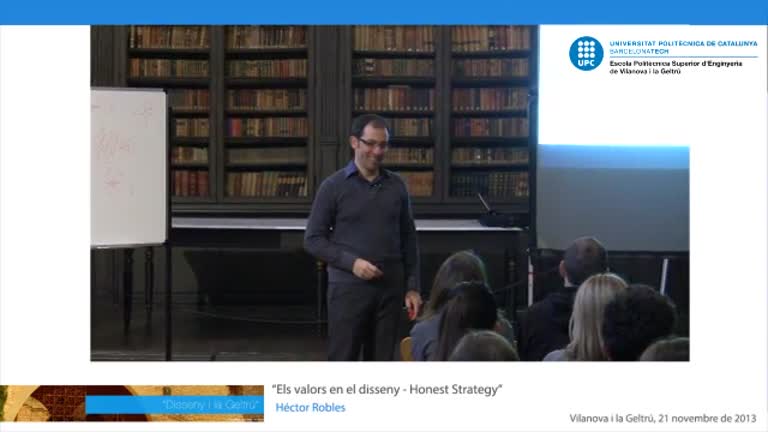Objectes multimèdia amb l’etiqueta: Campus i UTG
Resultats de la cerca
Tecnologia aplicada a la docència i la recerca a l'enginyeria de camins
Accés obert
27 de maig 2014
CaminsTECH, una iniciativa conjunta del personal TIC de l'Escola de Camins i dels seus Departaments. Aquesta iniciativa, pretén impulsar una nova forma de treball dels Serveis TIC basada en una col·laboració més estreta i en la compartició de coneixements i experteses a fi d'oferir serveis més específics i de valor orientats a la docència i la recerca.
El Disseny dels detalls
Accés obert
15 de maig 2014
El recorregut professional d’en Salvi Plaja és sens dubte ric en experiències i inspirador pels futurs professionals, com avala la seva trajectòria professional. En l'any 1999 es gradua com Enginyer de Disseny Industrial i Desenvolupament del Producte a la UdG i comença a treballar a BRAUN, on participa en el desenvolupament d’un nou concepte propi de MINIPIMER amb la conseqüent generació de patents i prototipus funcional. Al 2000 s’incorpora a I.E.P. Il·luminació i, entre 2002 i 2007, treballa com a enginyer de producte a Troll Luxiona, on desenvolupa tasques de disseny realitzant nous productes, càlcul i disseny de reflectors i projectes especials amb Jean Nouvel (parc Poble Nou), Herzog & Demeuron (Edifici Fòrum) i David Chiperfield (Ciutat Judicial) entre d’altres.
Des del 2012 en Salvi Plaja és Design Manager a Simon Tech empresa dedicada a donar servei de I+D+i a tot el grup Simon, en un període anterior, entre 2007 i 2008 ja havia sigut responsable del Grup de I+D a SIMONLighting. Entremig, entre 2008 i 2012, va ser Director Tècnic i Industrial a Santa & Cole.
Des del 2012 en Salvi Plaja és Design Manager a Simon Tech empresa dedicada a donar servei de I+D+i a tot el grup Simon, en un període anterior, entre 2007 i 2008 ja havia sigut responsable del Grup de I+D a SIMONLighting. Entremig, entre 2008 i 2012, va ser Director Tècnic i Industrial a Santa & Cole.
Imatges: Gestió del desplegament de sistemes als ordinadors d'aules
Accés obert
10 d’abr. 2014
Seminari Imatges: Gestió del desplegament de sistemes als ordinadors d'aules. Ponents: David Raya, Jordi Enric i Antoni Mayans.
AwaZza, recerca viatjant cap a producte
Accés obert
3 d’abr. 2014
Conferència emmarcada dins el cicle "Enginy i la Geltrú" que es duu a terme mensualment a l'Escola Politècnica Superior d'Enginyeria de Vilanova i la Geltrú. A càrrec de David Guijarro Guillem, expert tecnològic a Telefónica I+D, doctor en Informàtica per la UPC.
La transferència de tecnologia dels laboratoris de recerca fins a l'explotació comercial no és un camí fàcil ni tant sols per als productes de software. AwaZza ens serveix d'exemple de les fases i dificultats trobades pel camí. Eines de desenvolupament àgil, la metodologia "lean startup", la mentalitat experimental --assaig-error-- i, sobretot, la passió per la tecnologia són elements que fan més fàcil el trajecte. Tots aquests elements formen part de l'ADN de Telefónica I+D.
La transferència de tecnologia dels laboratoris de recerca fins a l'explotació comercial no és un camí fàcil ni tant sols per als productes de software. AwaZza ens serveix d'exemple de les fases i dificultats trobades pel camí. Eines de desenvolupament àgil, la metodologia "lean startup", la mentalitat experimental --assaig-error-- i, sobretot, la passió per la tecnologia són elements que fan més fàcil el trajecte. Tots aquests elements formen part de l'ADN de Telefónica I+D.
Disseny i disseny
Accés obert
20 de març 2014
Bel & Bel estudi creatiu i Digalix Solutions, un dels seus clients emblemàtics, ens permeten oferir el primer Disseny i la Geltrú doble, en el que se’ns presenta la importància d’entendre el disseny com una col·laboració essencial dels projectes innovadors. Dos camins que es troben per sumar, Toni Mayorgas, CEO a Digalix Solutions d’una banda i Carles Bel i Jesus Bel, socis i fundadors de Bel & Bel de l’altra.
Els socis de Bel & Bel, amb formació de Belles Arts i amb seu a Viladecans, a banda del magnífic treball que han fet per Digalix, han desenvolupat un model propi d’Innovació en el que, per exemple, a partir de les xapes de desguàs de la prestigiosa firma de motocicletes Piaggio Vespa, han creat un original model de cadira giratòria.
Toni Moyargas té una trajectòria que s’inicia amb un grau en relacions laborals, i que li permet evolucionar ràpidament cap a funcions directives en l’àmbit de les TIC i la gestió de projectes d’innovació, fins a posar “damunt de la taula”, mai tant ben dit, una proposta capdavantera pròpia.
Els socis de Bel & Bel, amb formació de Belles Arts i amb seu a Viladecans, a banda del magnífic treball que han fet per Digalix, han desenvolupat un model propi d’Innovació en el que, per exemple, a partir de les xapes de desguàs de la prestigiosa firma de motocicletes Piaggio Vespa, han creat un original model de cadira giratòria.
Toni Moyargas té una trajectòria que s’inicia amb un grau en relacions laborals, i que li permet evolucionar ràpidament cap a funcions directives en l’àmbit de les TIC i la gestió de projectes d’innovació, fins a posar “damunt de la taula”, mai tant ben dit, una proposta capdavantera pròpia.
SmartGrids : xarxes de distribució intel·ligents
Accés obert
27 de febr. 2014
Conferència dins el cicle "Enginy i la Geltrú" on es parla sobre la necessitat d’implementar una xarxa intel·ligent, com es crea, incidència per a les empreses de distribució d’energia i la repercussió per als usuaris. S’explicarà el funcionament de la lectura automatitzada dels comptadors i els beneficis que tindrà tant per l’empresa distribuïdora com per els abonats, així com l’estalvi energètic global que pot suposar.
Disseny, jocs i educació
Accés obert
20 de febr. 2014
Ullada a les capacitats que el propi Sergi Páez destaca: Design Management, Team leading, Design thinking, Cocreació, Negociació amb proveïdors, Gestió de projectes, Timings-Schedules, Benchmarking, Art director, Especialista en programació, 3D design, Sketch. Sergi Páez treballa el disseny i la creació de jocs a Educa Borras, empresa innovadora i capdavantera en el seu sector.
De Barcelona a Guangzhou
Accés obert
19 de des. 2013
Xavier Majoral, de l'empresa Stimulo, parla de la seva experiència, coneixements, manera de fer i entendre una agència de disseny industrial del segle XXI.
Acte de graduació : promoció 2011/2012 i 2012/2013
Accés obert
29 de nov. 2013
El campus de la UPC de Vilanova i la Geltrú celebra l'acte de graduació de les promocions titulades els cursos 2011/2012 i 2012/2013. L'acte comptà amb l'assistència de Joaquim Gay de Montellà, President de Foment del Treball, com a padrí de l’acte, realitzà la conferència ‘Projectes empresarials amb futur’.
[SC 2013] Estadística, vida quotidiana i sentit comú
Accés obert
25 de nov. 2013
Conferència impartida dins el cicle de xerrades de la Setmana de la Ciència 2013 a l'EPSEVG.
L’Estadística és la ciència de les dades. En aquesta xerrada veurem amb exemples com coses d’Estadística molt elementals ens poden ajudar en moltes accions de la nostra vida quotidiana. Nombres i bones dosis de sentit comú ens han d’acompanyar per viure millor i entendre moltes coses de la nostra societat actual.
L’Estadística és la ciència de les dades. En aquesta xerrada veurem amb exemples com coses d’Estadística molt elementals ens poden ajudar en moltes accions de la nostra vida quotidiana. Nombres i bones dosis de sentit comú ens han d’acompanyar per viure millor i entendre moltes coses de la nostra societat actual.
Els valors en el disseny : Honest Strategy
Accés obert
21 de nov. 2013
Héctor Robles promou un nou model de fer, batejat com Honest Strategy, que unifica l'estratègia de negoci, la innovació centrada en les persones i la gestió de la cultura d'empresa. Es tracta d'un model de transformació que s'aplica a les organitzacions perquè puguin assolir felicitat, èxit i sostenibilitat a través de l'honestedat. L'ha experimentat (totalment o en part) a empreses com Caser, Connectia, Axel Springer, FabLab o Lékué (últim Premi Nacional d'Innovació i Disseny ), entre altres.


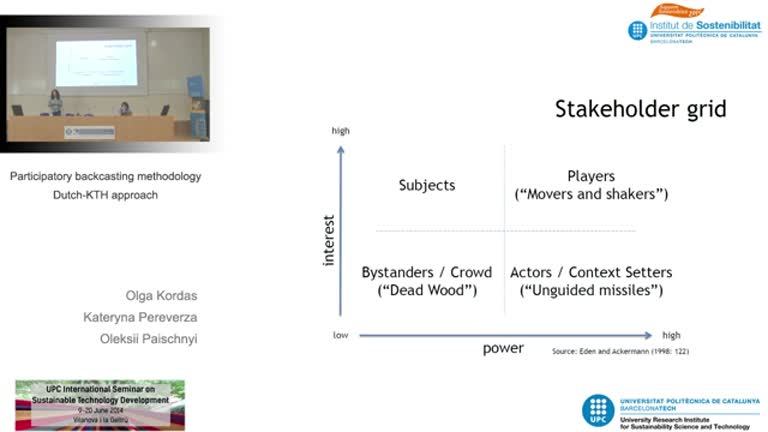
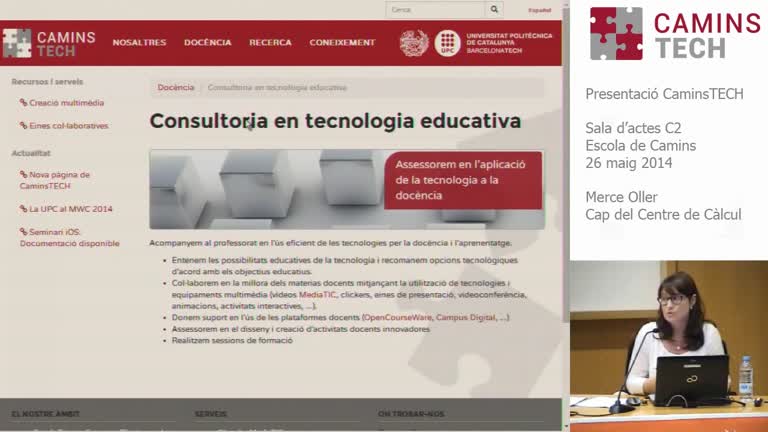
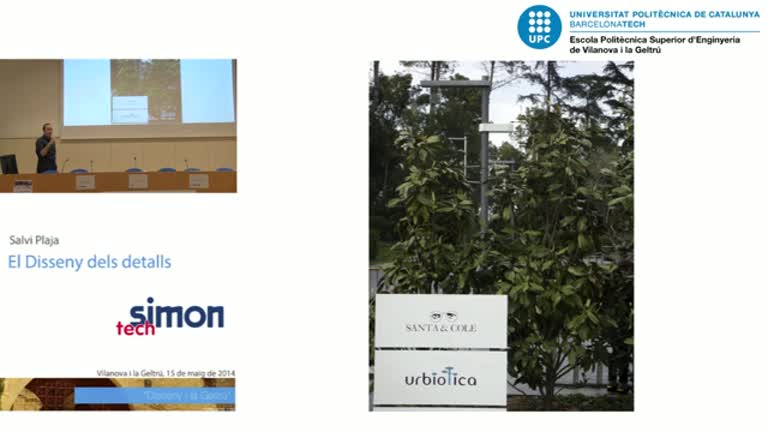
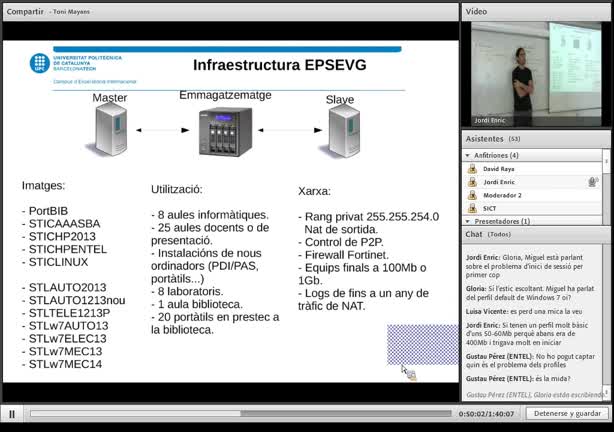
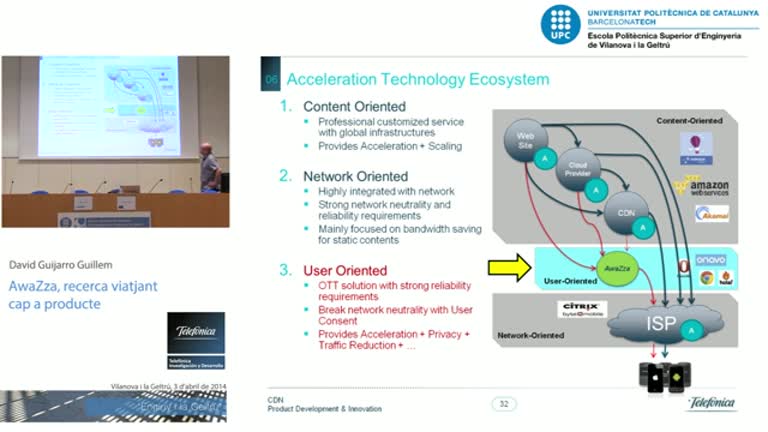
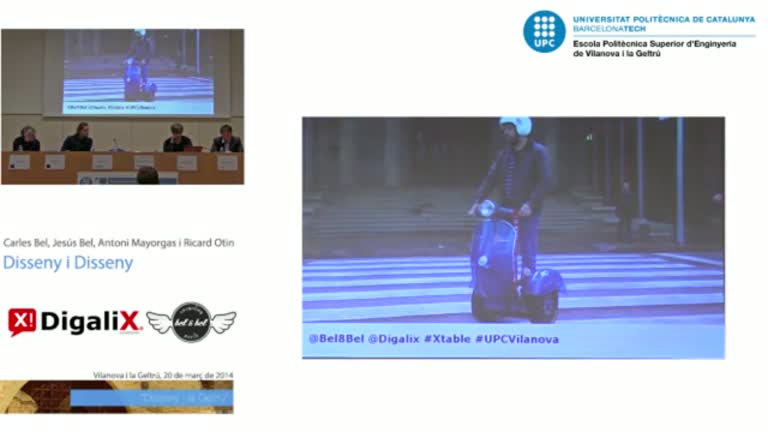
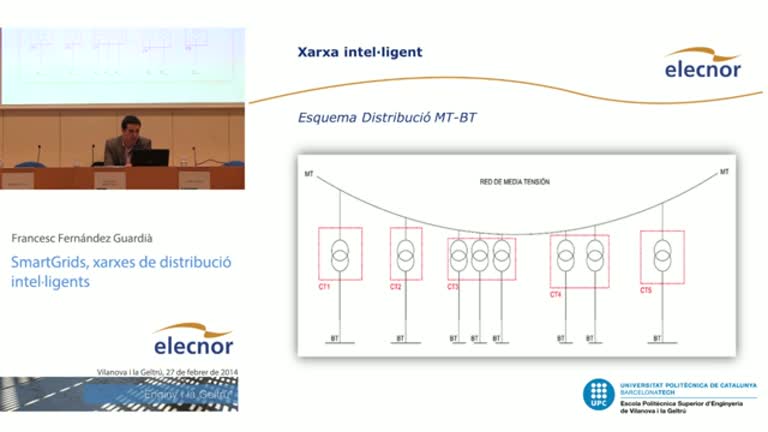
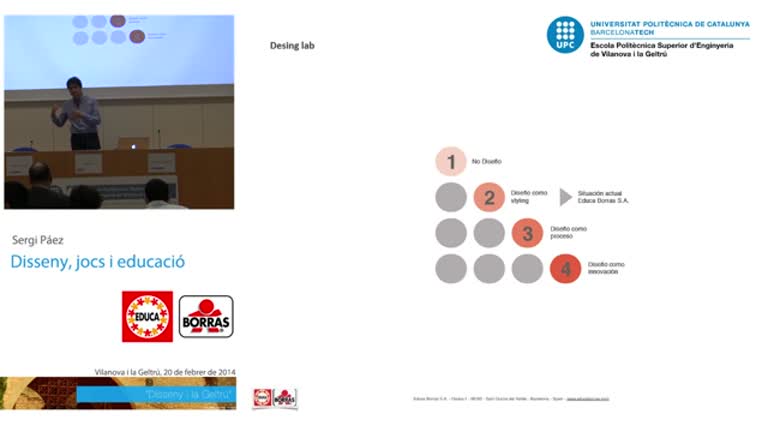
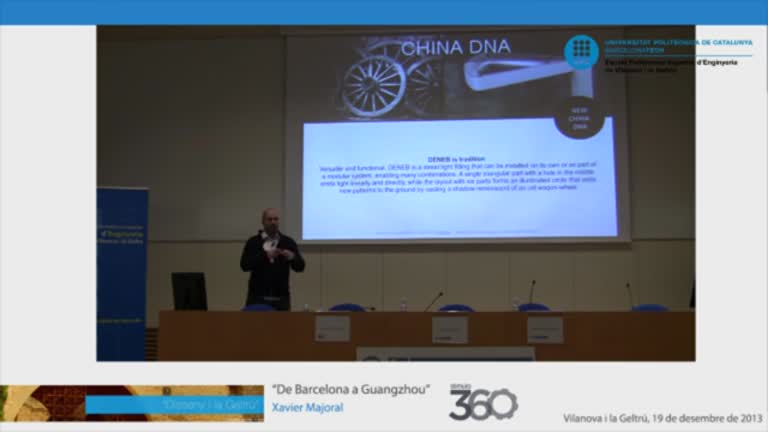
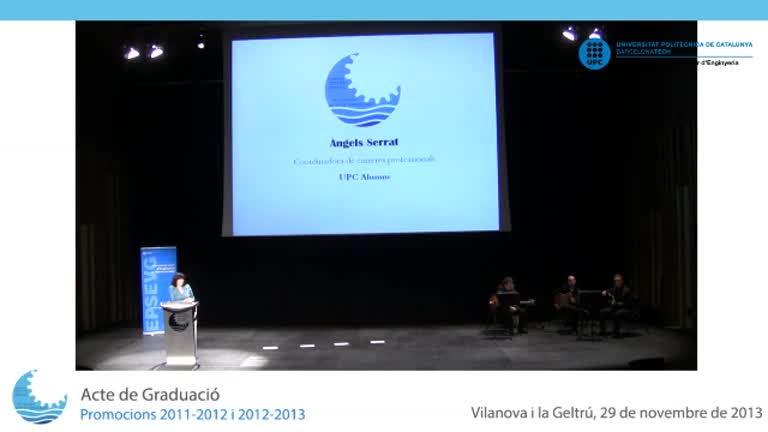
![[SC 2013] Estadística, vida quotidiana i sentit comú](/uploads/pic/series/6040aa649e8fe0002b5e5184/video/6042744a9e8fe011593d23ae/210305200137.jpg)
